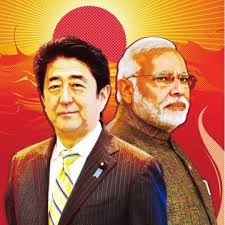A swipe of a credit card. A text message that’s just been sent. The purchasing of a subway ticket off the transit kiosk.
Data collection is omnipresent in society, and it occurs through the simplest everyday actions and processes, many of which users seldom think of. From the simple online purchase on Amazon to the photo you posted on Facebook a while back, all users leave a digital footprint in cyberspace. This fact can generate heated debates regarding the rights that come with who has the authority to own the data that belongs to every individual, what that data can be used for – or how it can be manipulated.
This heavily debated topic of data collection is at the core of Netflix’s recently released documentary film “The Great Hack,” recounting the story of previous British political consulting firm Cambridge Analytica, and the controversies that arose amidst its work with data collection and social media. Mentioned in the film are a few key projects Cambridge Analytica allegedly participated in, including Leave.EU and the U.S. Presidential Election of 2016. The firm came under scrutiny when Professor David Carroll of Parsons School of Design requested to see the data it had collected on him. His inquiry is a first for the firm, and before he knows it, Professor Carroll’s seemingly simple request has been met with multiple refusals and has brought the firm’s actions and data collection and distribution tactics to the attention of an enraptured public.
“The Great Hack” is a documentary that has generated much interest, with today’s audiences increasingly interested in finding out more about the limits of data privacy and seeking to understand how ‘private’ information on an individual’s social media really is. Directors Jehane Noujaim and Karim Amer bring to light the ease of access for any individual with an electronic device, or even simply living their daily lives in a relatively built-up, commercialized and interconnected city such as New York or London. Showing Professor Carroll’s wariness towards his children downloading apps to use on their digital devices, the film places great emphasis on how the average individual no longer reads the terms and conditions of an internet waiver, or terms and conditions of the usage of an app and its privacy settings. The New York Times’ mention of making agreements “intelligible and easily accessible” has now been placed at the forefront of many companies’ minds, though it remains unclear whether this ‘easily understandable’ language is actually encouraging users to read the terms.
Another lesson from the film is a reminder for the layperson to demand accountability from companies and corporations who have access to this data. The film’s portrayal of the average citizen unknowingly and willingly volunteering data to various social media platforms is one that is common and eerily relatable. The film’s portrayal is supported by data offered by Pew Research Center showing that although there are about seven out of ten American adults reported using some social media platform, only about 9% believe they have ‘a lot of control’ over data that is collected from them. The lack of trust and transparency coming from companies surely perpetuates this continual trend, as society becomes increasingly intertwined with the use of social media and its prominence in everyday lives.
In regard to international governance and security, as well as the involvement of multilateral organizations such as NATO, the film’s mention of the British law courts is minimal, and yet it is notably one of the most significant decision-making actors within the situation of data security. The film should serve as a warning for all multilateral organizations and governments to become increasingly proactive in creating legislation to keep up with the changing data environment. Some proactive motions that are currently being undertaken by multilateral organizations include the NATO Cooperative Cyber Defence Centre of Excellence, while Professor Walter Dorn at the Royal Military College of Canada and the Canadian Forces College propose a cyber team of similar nature with the United Nations. While companies are able to do their part in protecting their own consumers, it is paramount that governments first set the guidelines for these corporations to work within, in order to minimize the effects of data disasters such as Cambridge Analytica’s. Although the film ultimately deploys dramatized effects with viewer entertainment in mind, it serves as a great medium to reach a regular Netflix user, and in turn, spreads the message to be cognizant of social media and data sharing.
Considering the rapid spread of these new technologies, it would be rather naïve to believe that individuals will moderate their usage any time soon, yet hopefully this film serves as a reminder for users to be mindful of the information that is shared online, and to be cognizant of the outlets or companies with whom this data is being shared.
Ultimately, “The Great Hack” serves as a timely reminder to be aware, and to exert control over our technology – before it controls us.
Featured Image: “Cambridge Analytica” (2018), by Book Catalog via Flickr. Licensed under CC BY 2.0.
Disclaimer: Any views or opinions expressed in articles are solely those of the authors and do not necessarily represent the views of the NATO Association of Canada.




